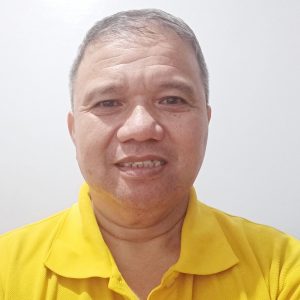
Honest, orderly and peaceful elections were the mantra advocated by the election commission. Of the elements mentioned, the easy indicators were the order and peaceful conduct of the elections. Those were the observable aspects that even the ordinary citizen can measure by mere observation. Indeed, the barangay as the basic unit of local governance is composed of people who are mostly relatives buy blood or inter-marriages except in communities that resulted out of the relocation of supertyphoon yolanda survivors where constituents come from various places. The peace and order were maintained as violence was prevented by the family ties.
But the aspect of the elections being honest is tough to measure as almost every citizen were taking part in the rampant machinations, chiefly the buying and selling of votes. Party-lines prevailed notwithstanding the principle that the barangay elections was supposed to be non-partisan. The crisscrossing of money were very much obvious as vote-buyers acting as leaders were bold enough to showoff their operations as voters were waiting in ambush to take the money from all sources. Candidates had openly declared their readiness to shell out huge cash as the amount could be recovered from the honorarium they expect to get.
The amount would even be bigger if the candidate, especially for the local chief executive, who expects to a bigger return of investments from the programs and projects to be implemented. The willingness to spend more was considered a calculated risk where the odds are deemed skewed towards winning the elections. In most instances, the candidate has the gall to spend more considering that politicians from the provincial, city, municipality and even congressional and party-list were downloading financial support to ensure that their bets are elected.
The support from such politicians turned the barangay elections into a proxy war as they aim to take control of the barangay leaders in anticipation of the next midterm elections. Gaining the upper hand in the number of barangay leaders is an advantage in their favor. This resulted in the barangay candidates willingness to engage in an unlimited bidding just to get the support of the voters. The clever voters would take the rare opportunity to get money from all candidates and obtain more as the ante keeps increasing towards the later part of the voting time.
The youth were not spared from such corrupt practices as vote buying were also rampant, following the dictates of the group that took them as candidates. In some instances, the youth were included in campaign meetings of the candidates for barangay positions. The aim is to use the youth leader, chiefly the chairman, who is entitled a seat as ex-oficio member of the barangay council. The youth chairman would be a factotum of the barangay chairman, who would need the support in every voting during council sessions.
With the new set of barangay and youth politicians masquerading as leaders in the communities, people could only keep their fingers crossed that there is hope for the community and the people. The truth remains that the votes were bought at so high a price that would be recovered in just twenty-four months. People have no reason to complain as they had been paid and their politicians are up to recover the expenses and gather more funds for the next elections. Wonder no more if we still have . . . hope?
comments to alellema@yahoo.com



